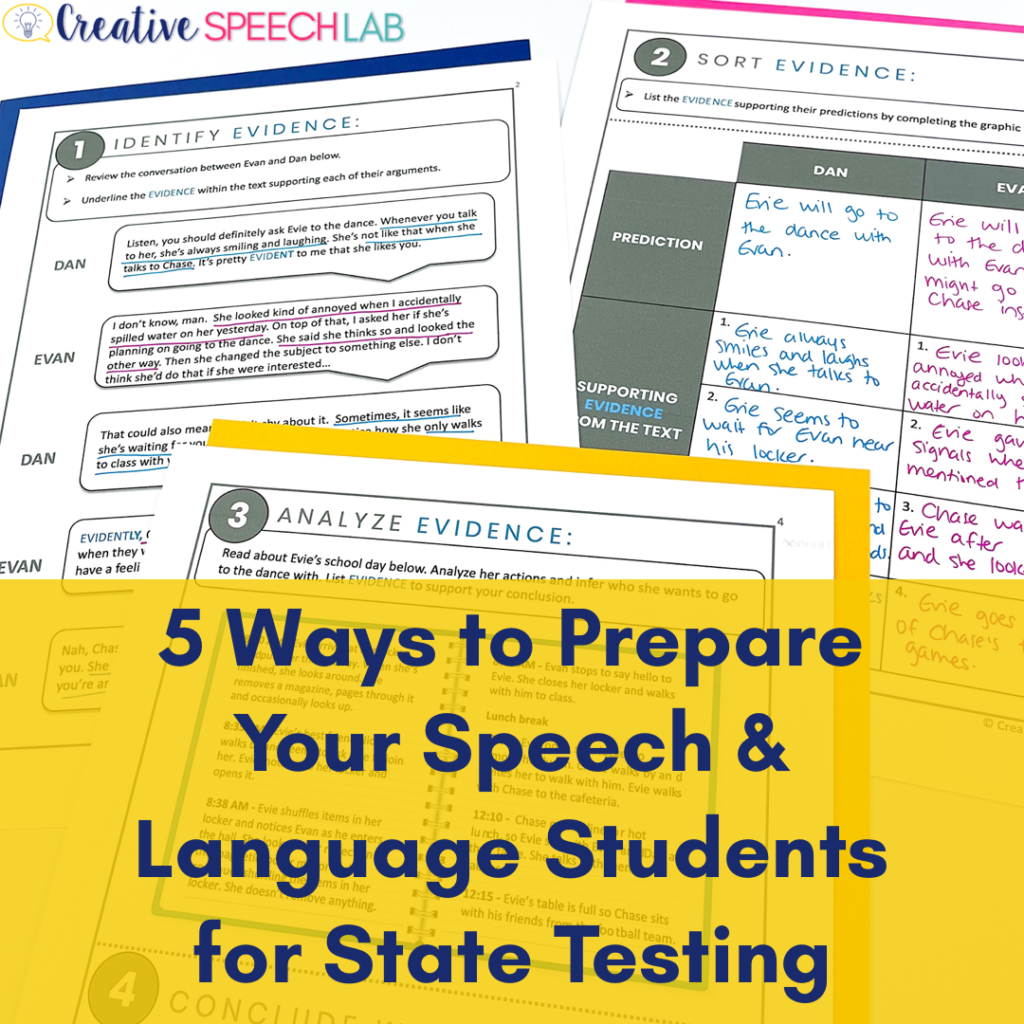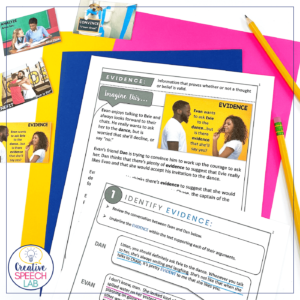I think it’s safe to say that most students and staff don’t exactly look forward to state-wide testing. It can sometimes feel especially challenging to speech-and-language-impaired students.
Here’s the good news. (Yes, there is good news!)
You can prepare and support your speech and language students for testing while also providing meaningful instruction. These 5 ideas are not designed to “teach to the test,” but rather to provide your students with a foundation of skills that will come in handy during statewide testing.
1. Provide Tier 2 Vocabulary Instruction
If you know me, you know I’m a huge proponent of Tier 2 vocabulary, which consists of high-frequency words that occur across the curriculum (e.g. evaluate, infer). Why Tier 2? Researchers describe this subset of vocabulary as having “high utility because they are useful across multiple contexts” (Elleman et al., 2019).
In addition, the directions and questions found in standardized tests are filled with Tier 2 vocabulary. When students have a solid foundation in this area, it will help them across the curriculum and throughout the testing process.
Check out my research-based method for teaching Tier 2 vocabulary!
2. Highlight Tier 2 Words in Directions and Questions
Grab assignments from your students’ classrooms and take out your highlighter. Highlight Tier 2 words in the directions and questions. Take time to make sure your students understand what is being asked of them. (This step is sometimes skipped over, but it’s an important one to discuss with students).
3. Practice Deductive Reasoning for Multiple Choices Questions
The process-of-elimination requires a lot of linguistic organization. Students must often ask themselves WH questions to eliminate choices that are unlikely to be correct. Sometimes they’ll need to use context clues and make inferences. The multiple choice format provides an excellent opportunity to scaffold and practice all of these skills.
4. Use a Growth Mindset
If your students struggle with language, they might feel a bit apprehensive about testing. Set aside time to talk to them about how they’re feeling. Remind them of their strengths and praise their effort over their performance. Help them use growth mindset affirmations like “I can do hard things” and “I am brave enough to try.”
5. Explore Accommodations
Some students receive testing accommodations such as having a reader or extended time. Check to see if your students have any of these accommodations or if they might be eligible to receive some.
I hope you’ve found these tips helpful! Is there anything else you would add? Best of luck with state testing. Your students are very lucky to have you!
For more research-based tips about Tier 2 vocabulary instruction, check out:
- Top 5 Tips for Teaching Tier 2 Vocabulary (with FREEBIE)
- Tier 2 Vocabulary with Research, Visuals & Mnemonics
Elleman, A.M., Lindo, E.J., Morphy, P., & Compton, D.L. (2009). The impact of vocabulary instruction on passage-level comprehension of school-age children: A meta-analysis. Journal of Research on Educational Effectiveness, 2(1), 1-44.
Elleman, A. M., Oslund, E. L., Griffin, N. M., & Myers, K. E. (2019). A Review of Middle School Vocabulary Interventions: Five Research-Based Recommendations for Practice. Language, Speech, and Hearing Services in Schools, 50(4), 477–492. https://doi.org/10.1044/2019_lshss-voia-18-0145




